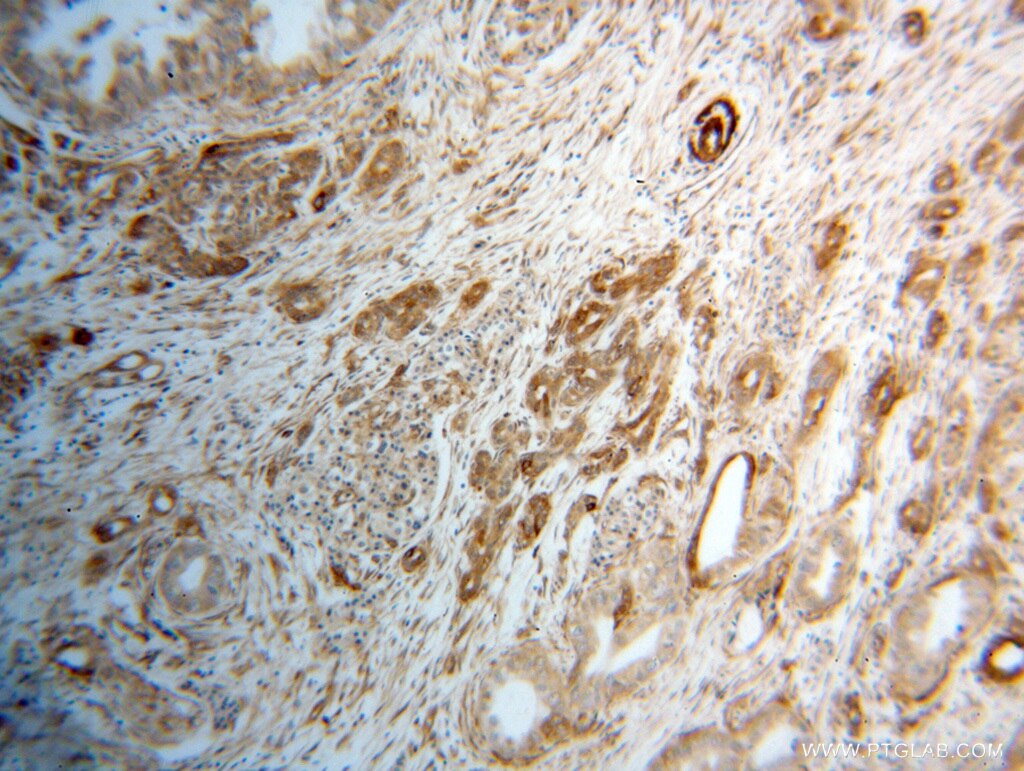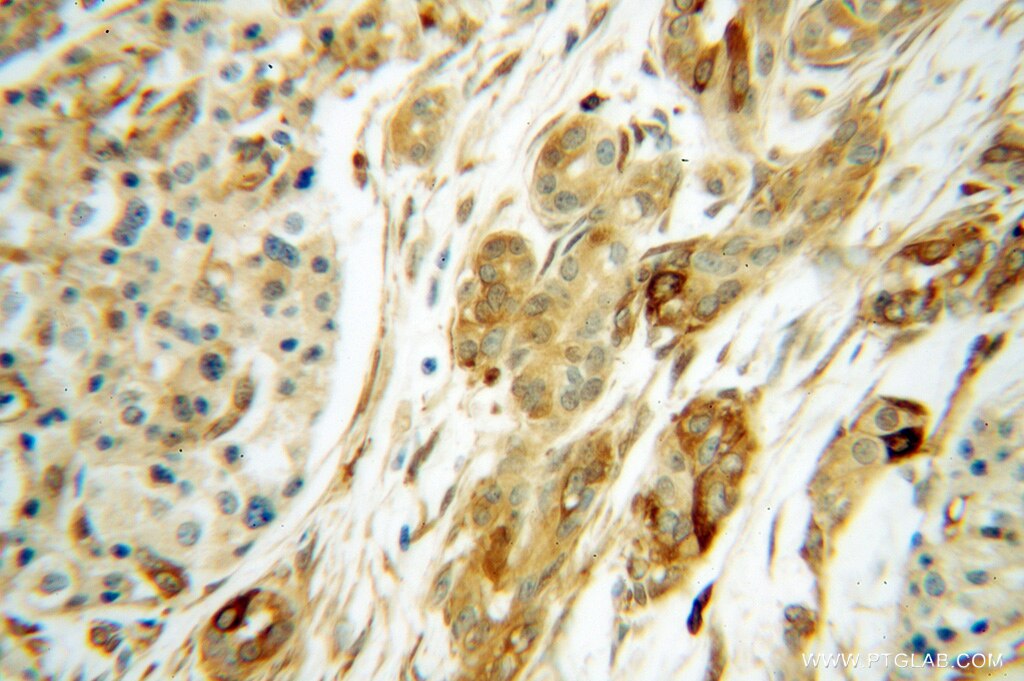Tested Applications
| Positive IHC detected in | human pancreas cancer tissue Note: suggested antigen retrieval with TE buffer pH 9.0; (*) Alternatively, antigen retrieval may be performed with citrate buffer pH 6.0 |
Recommended dilution
| Application | Dilution |
|---|---|
| Immunohistochemistry (IHC) | IHC : 1:20-1:200 |
| It is recommended that this reagent should be titrated in each testing system to obtain optimal results. | |
| Sample-dependent, Check data in validation data gallery. | |
Published Applications
| KD/KO | See 1 publications below |
| WB | See 2 publications below |
| IHC | See 1 publications below |
Product Information
14796-1-AP targets RPS28 in WB, IHC, ELISA applications and shows reactivity with human, mouse, rat samples.
| Tested Reactivity | human, mouse, rat |
| Cited Reactivity | human, rat |
| Host / Isotype | Rabbit / IgG |
| Class | Polyclonal |
| Type | Antibody |
| Immunogen |
CatNo: Ag6505 Product name: Recombinant human RPS28 protein Source: e coli.-derived, PGEX-4T Tag: GST Domain: 1-69 aa of BC000354 Sequence: MDTSRVQPIKLARVTKVLGRTGSQGQCTQVRVEFMDDTSRSIIRNVKGPVREGDVLTLLESEREARRLR Predict reactive species |
| Full Name | ribosomal protein S28 |
| Calculated Molecular Weight | 8 kDa |
| GenBank Accession Number | BC000354 |
| Gene Symbol | RPS28 |
| Gene ID (NCBI) | 6234 |
| RRID | AB_2285281 |
| Conjugate | Unconjugated |
| Form | Liquid |
| Purification Method | Antigen affinity purification |
| UNIPROT ID | P62857 |
| Storage Buffer | PBS with 0.02% sodium azide and 50% glycerol, pH 7.3. |
| Storage Conditions | Store at -20°C. Stable for one year after shipment. Aliquoting is unnecessary for -20oC storage. 20ul sizes contain 0.1% BSA. |
Protocols
| Product Specific Protocols | |
|---|---|
| IHC protocol for RPS28 antibody 14796-1-AP | Download protocol |
| Standard Protocols | |
|---|---|
| Click here to view our Standard Protocols |
Publications
| Species | Application | Title |
|---|---|---|
J Orthop Translat Comparative proteomic analysis identifies differentially expressed proteins and reveals potential mechanisms of traumatic heterotopic ossification progression. |






